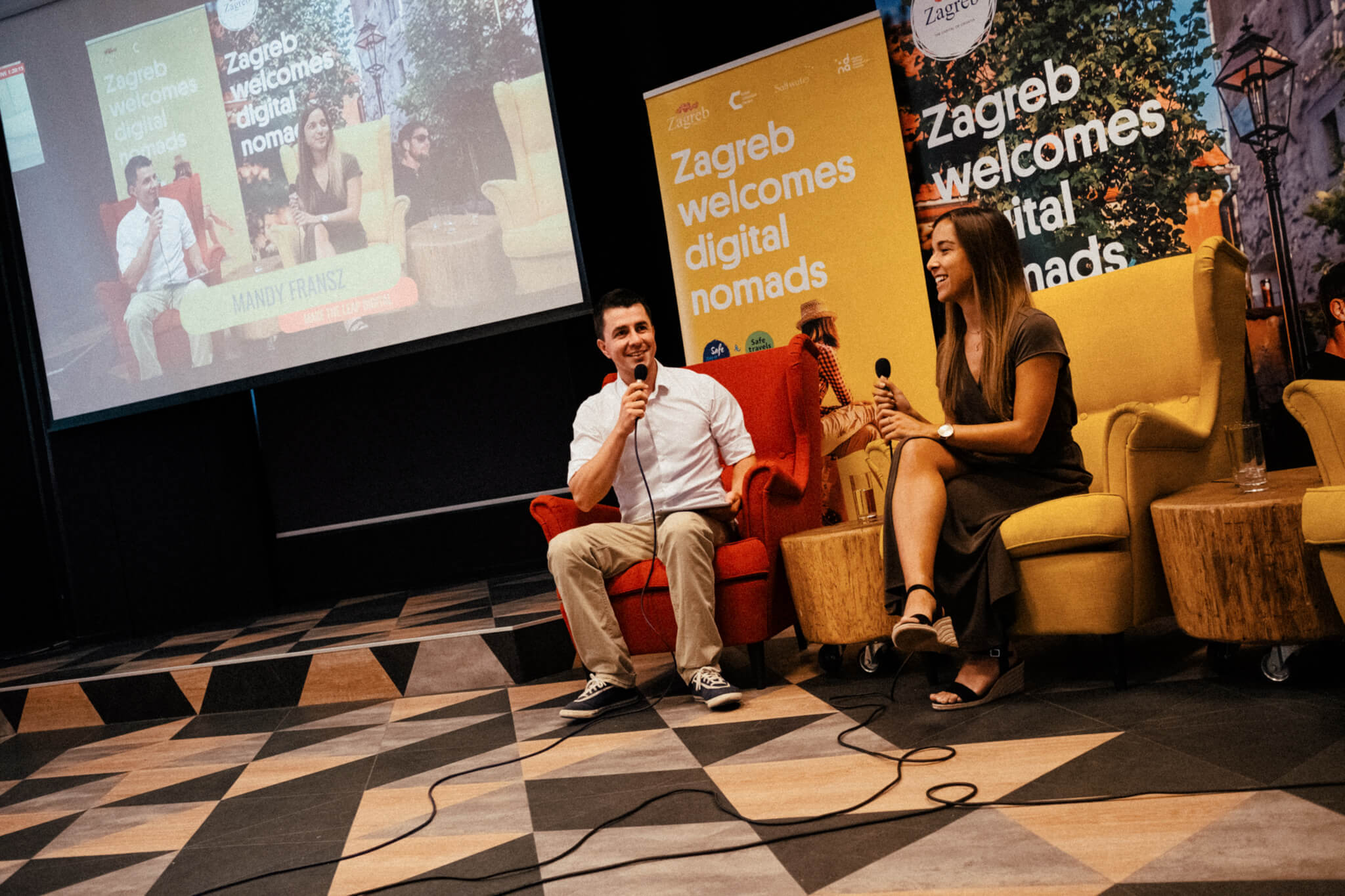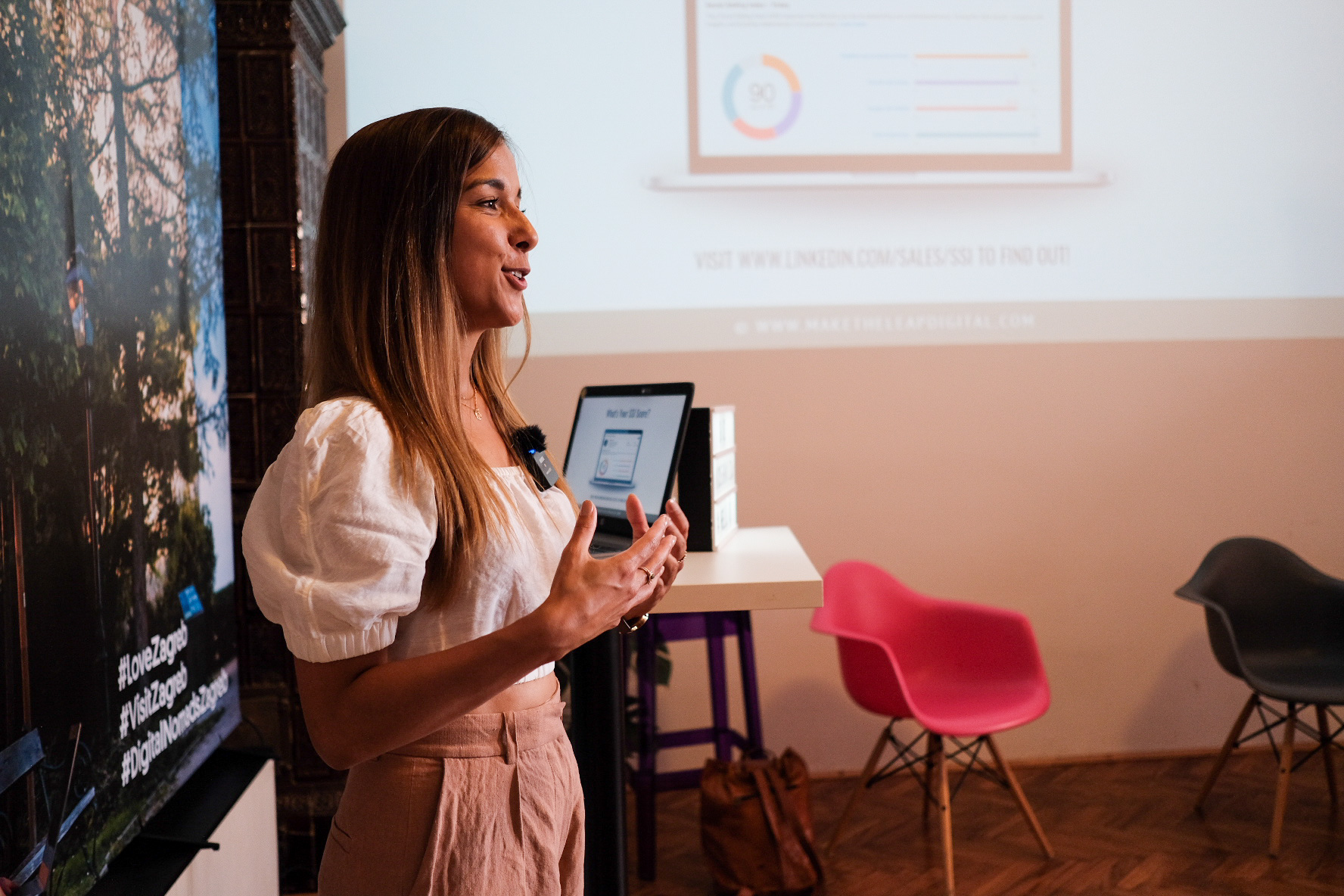NYT Writes About Decreased Croatian Reservations, Cites Ukraine War
April the 6th, 2022 - The New York Times (NYT) has written about the decreased Croatian reservations we're currently experiencing after high post-pandemic hopes were dashed as Russia invaded neighbouring Ukraine. To some foreigners, Croatia is too close on the map of Europe to the battlefield, despite the lack of truth in that.
As Poslovni Dnevnik writes, so far, the hardest hit destinations when it comes to reservations are countries near to Ukraine, including Poland, Bulgaria, Croatia, Estonia and Hungary, where bookings have dropped by between 30 and 50 percent, according to the New York Times, citing data from analyst firm ForwardKey.
Negative consequences are also being felt in more distant destinations such as in Spain. Diego Sanz, a tour guide on Spain’s gorgeous Mediterranean coast, received his very first international group in more than a year in mid-February. It was, he thought, a sign of better things to come.
''We live in paradise here and we were sure that when the coronavirus restrictions were lifted, we'd have no more problems and tourists would come flocking back to us like bees come to nectar,'' said Mr Sanz, sitting in the silence of a cafe in the very popular Spanish port city of Alicante.
International reservations have been slowing down ever since Russia invaded Ukraine. In the first week of the war alone, airline bookings within Europe fell by 23 percent, and overseas bookings to European countries fell by 13 percent, according to ForwardKeys.
What about Croatian reservations? The Republic of Croatia is often ranked among the European economies most highly dependent on tourism, as tourism accounts for about a fifth of this small nation's gross domestic product, according to the Croatian Bureau of Statistics (CBS).
Destinations along Croatia's sparkling Adriatic coast attracted the majority of 13.8 million visitors and 84.1 million overnight stays back in 2021, which led to GDP growth of 10.4 percent.
Although the cancellation of Croatian reservations have been somewhat minimal so far, there has definitely been a marked slowdown in some areas. Dubrovnik Boats, a private excursion and charter company with the majority of its clients coming from across the pond in the USA, was expecting a record year, but after the outbreak of war in Ukraine, their reservation rate suddenly fell by 70 percent. "We're an inch away from Ukraine to foreigners when looking at a map," said Niksa Smojver, the company's owner.
Significant concerns this year for shipping charter companies are also being caused by rising gas prices and the possibility of fuel shortages. For Dubrovnik Boats, for example, the cost of a return tour between Dubrovnik and Hvar is now 750 US dollars higher than it was last year.So far, the company hasn't increased its passenger ticket prices, but may need to if the situation fails to calm down. Still, Smojver remains hopeful.
''After the pandemic people have become fed up with everything and everyone wants to travel. This season could be one of the best we've ever had,'' he said.
In other parts of Europe, especially in tourism-dependent countries, the forecasts are gloomier. Cancellations in nearby Italy have brought pessimism among tour guides and operators, although some have expressed hope that the war will end soon and that the season will be saved.
''In general, the mood is a depressed one because it seemed like this was all over, and instead there was yet another new downturn,'' concluded Margherita Capponi, an Italian tour guide from Rome.
For more, make sure to check out our dedicated travel section.
Croatia Still Leading, Most Sought After Destination for Austrian Market
April the 6th, 2022 - The Republic of Croatia is still the leading, most sought after holiday destination this summer for the Austrian market, with Austrian tourists ready to bask in the Adriatic sun and swim in the sparkling sea.
As Poslovni Dnevnik writes, ahead of the main summer part of this year's tourist season, Austrian travel organisers conducted market analyses according to which Croatia is at the very top of the most sought-after foreign destinations for the Austrian market, reports local portal Glas Istre/The Voice of Istria.
Namely, travel organiser Gruber Reisen conducted a survey among its clients and customers, which totalled 1,200 respondents, entitled ''Travel Barometer in 2022'', according to which Croatia is the leading and most sought-after destination for the Austrian market, which shouldn't come as much of a shock to anyone.
"Austria is one of the most important emitting markets for Croatian tourism, and this country is supported by data from a survey according to which as many as 95 percent of Austrians said they want to spend their summer holidays somewhere else in Europe," said Branimir Toncinic, the director of the CNTB Office in Austria, adding that security and safety when in the destination remains an important aspect for the majority of people when booking a trip. Two thirds of Austrians plan to spend 1,500 euros per person.
The results of the survey also show that the will and desire of Austrians to travel is great given that 53 percent of respondents have already booked a trip this year. At the same time, about 65 percent of the respondents said that they'd prefer a beach holiday, ie the sun and the sea are a main a motive for coming, while visits to cities are becoming more interesting to many on the Austrian market and are in second place.
For more, make sure to check out our dedicated travel section.
Destination Dubrovnik: Meet Mandy Fransz from Make the Leap Digital
April 5, 2022 - With just over a month to go until the innovative Work. Place. Culture. remote work conference in Dubrovnik, TCN continues its look at the list of high-class international speakers who will be sharing their wisdom in the Pearl of the Adriatic. Below, a familiar face and recognized as one of the US LinkedIn Top Voices 2022, Mandy Fransz returns to share about remote work, LinkedIn, and entrepreneurship.
A busy season for Croatia's digital nomad story is about to begin. Last year's highlights included the introduction of the digital nomad permit on January 1, 2021, and destinations such as Zagreb and Dubrovnik attracted global interest with award-winning events such as Zagreb Digital Nomad Week and Dubrovnik Nomads-in-Residence project.
Both Zagreb and Dubrovnik will continue their push to position themselves in the market in 2022, with Zagreb Digital Nomad Week 2022 set to take place in June, and a news conference before that in Dubrovnik, as previously reported on TCN: Work. Place. Culture.
Total Croatia News continues to present the elite lineup for the Work. Place. Culture., this time with Mandy Fransz. A former LinkedIn™ employee, Mandy had a front-row seat in witnessing the world’s largest professional network grow to currently nearly 800 million members in over 200 countries while generating +$320K in revenue in less than 12 months. She founded Make the Leap Digital from a tropical co-working space in Bali and since then she has worked, lived, and traveled around the world while helping clients around the world through digital courses, consulting, speaking, and interactive workshops. In 2019, she was nominated as one of the most inspiring and ambitious women entrepreneurs in The Netherlands and she has been featured in top (inter)national publications such as Thrive Global, VIVA400, & LINDA.
Another digital nomad event in Croatia, another appearance by Mandy Fransz. Tell us firstly about your relationship with Croatia.
Thank you for having me again! Excited to be back in Croatia -- last year, I was invited as one of the keynote speakers at Zagreb Digital Nomad Week and since then it has been one of my favorite remote work destinations worldwide. From the food, culture, and work-friendly cafes & co-working spaces in Zagreb to working remotely from the beautiful coast in Split while exploring islands with cobblestone streets and emerald green waters such as Brač and Hvar island. I am excited to see what this new remote work adventure will bring!

Photo: Jose Alfonso Cussianovich
You were one of the keynote speakers at Zagreb Digital Nomad Week. How was that for you, and how do you see Croatia's progress in the DN sector since then?
It was an honor to be one of the keynote speakers at the Zagreb Digital Nomad Week last year, a well-deserved award-winning event! I hosted a workshop about "How To Build Your Personal Brand on LinkedIn" and a keynote "The Rise of Remote Work" sharing my top insights and lessons learned since I quit my corporate job to work remotely back in 2018 while building an online community of 25K+ social media followers and +75K group members inside the Remote Workers on LinkedIn group. The entire city was transformed into the event venue, which was a perfect way to attend a wide range of activities, keynotes, and workshops while exploring the city -- also, one of the event highlights was the fun and insightful themed city walking tours in the evenings! (make sure to join the Ghosts and Dragons Tour by Secret Zagreb while you're there!).
I believe Croatia has done a fantastic job in taking the digital nomad and remote work lifestyle to the next level with ambassadors and initiators such as Digital Nomad Association, Total Croatia News, and Saltwater Nomads -- I am excited to see the momentum grow with the exciting events and conferences lined up for 2022.

Photo: Jose Alfonso Cussianovich
The Zagreb Digital Nomad Ambassador program was a successful postscript to ZDNW, and now you will be working as a similar ambassador for Dubrovnik in May. Why did you take the role, and what do you expect it to involve?
I learned about the Ambassador Program while attending ZDNW last year, and immediately knew I'd apply if I'd have the chance -- I believe that it's a great initiative to explore a new destination while bringing together the digital nomad community by organizing local events and collaborating with different stakeholders to make a positive impact on the remote work lifestyle in Croatia. Additionally, I hope to discover the work-friendly cafes and co-working spaces, experience the food and culture, and explore the beautiful Dalmatian coast during the evenings and weekends.
Work. Place. Culture. takes place from May 5-7. Tell us about it, why people should come, and your role in it.
Tanja Polegubic from Saltwater Nomads asked me if I would be keen to return to Croatia this year for another exciting event focused on remote work and digital nomads. Since my last visit, Dubrovnik has been high on my list as I've heard many great stories from fellow digital nomads and expats -- so when I heard about the Work. Place. Culture conference taking place from May 5 - 7 I immediately said yes!

Looking at the event program, I am positive that this is going to be another world-class event filled with activities, workshops, and keynote speeches across beautiful venues from "netwalking" the fortress walls, a Game of Thrones Tour, and a Sunset cruise dinner on a "Karaka". I am honored (and a bit nervous haha!) to open the conference with my keynote and I'm excited to meet a few of my industry peers in-person, such as those I've been honored to be featured in the 2022 US LinkedIn Top Voices: Remote Work, and to reconnect with last year's speakers and attendees, many of which turned into friends.
You have built your business on LinkedIn, where you used to work, and there are 5 speakers of the Top 10 2022 LinkedIn Top Voices: Remote Work speaking in Dubrovnik. Tell us about the relationship between LinkedIn and the remote work revolution.
I worked for LinkedIn's EMEA headquarters in Dublin, Ireland as my first full-time job upon graduation. However, I've always had an interest in the digital nomad lifestyle, hence, in 2018 I decided to quit my comfortable 9-to-5 corporate job to "explore the world of remote work". While working at the world's largest professional network with currently +810 million members across the globe, I realized that the demand of the global workforce was shifting -- many research and studies showed that (especially millennials and Generation Z) more and more people were craving the freedom and flexibility to work from wherever they feel the happiest and most productive.

I decided to share my remote work journey on LinkedIn, and I was asked to manage a small community on LinkedIn focused on digital nomads and remote workers. In the past three years, we've grown from ~2,000 members to currently +75,000 engaged members which clearly showcases the remote work revolution! Many of our members were forced to "work from home" due to the pandemic, and now desire to work remotely forever.
What are you looking forward to most from your time in Dubrovnik, and what are you hoping to get from the conference and ambassadorship?
As mentioned before, I'm excited to (finally!) meet a few of my industry peers in person and to reconnect with last year's event attendees-turned-friends -- and, of course, I really look forward to the exciting line-up of keynotes, workshops, and activities (in case you don't know what a Karaka is, Google it now, please!). Finally, I'm thrilled to explore Dubrovnik and the Dalmatia region and I look forward to contributing to the digital nomad lifestyle and community in Dubrovnik as an ambassador.
Photo: Jose Alfonso Cussianovich
And finally, what's next for Mandy Fransz?
I am currently working remotely from beautiful Portugal while launching my signature, online group program for early-stage entrepreneurs who are ready to kickstart and grow their online personal brand and business so they, too, can enjoy the freedom and flexibility that they deserve before I'll head to Croatia for the events and ambassador program. After that, I'm excited to see what serendipitous opportunities will cross my path!

Feel free to visit Mandy's website or reach out to her via email at This email address is being protected from spambots. You need JavaScript enabled to view it. for inquiries, or follow her on Instagram or LinkedIn for valuable tips and inspiration about LinkedIn, remote work, and (online) entrepreneurship.
You can download the full programme of the Work.Place.Culture Conference in Dubrovnik here.
Work. Place. Culture. is a collaboration between the City of Dubrovnik, Dubrovnik Tourist Board, Saltwater Nomads and TCN, with support from the Digital Nomad Association Croatia and Dubrovacka Bastina. Zagreb Digital Nomad Week is a partnership between Zagreb Tourist Board, Saltwater Nomads, and TCN.
To learn more about magnificent Dubrovnik, check out the Total Croatia Dubrovnik in a Page guide, in partnership with Sun Gardens Dubrovnik.
For more news and features on digital nomads in Croatia, follow the dedicated TCN section.
Croatia Has Cheapest Agricultural Land in EU
ZAGREB, 5 April 2022 - Agricultural land in Croatia is the cheapest in the EU, more than 20 times cheaper than in the Netherlands, which has the most expensive agricultural land, show data from the EU's statistical office Eurostat.
Eurostat has established that one hectare of farmland in the Netherlands cost as much as €69,632 in 2019, noting that all Dutch regions are above the average of other EU countries.
Croatia had the cheapest arable land, with the price of one hectare being €3,440 in 2020.
Among the regions, the most expensive are the Spanish Canary Islands, where one hectare of arable land in 2020 cost €120,447.
Sweden's Oevre Norrland was the cheapest, with a hectare of agricultural land costing only €1,822 in 2020.
Eurostat did not have data for Germany, Portugal and Cyprus.
In the period from 2011 to 2020 the price of farmland grew the most in Romania and the Czech Republic, more than five times.
Prices of farmland grew significantly also in Estonia and Lithuania, as well as in Bulgaria, Hungary and Poland.
Farmland prices grew also in other EU countries albeit less, the only exception being Greece, where farmland in 2020 was as much as 18% cheaper than in 2011.
Eurostat had data for Croatia only for the period from 2015 to 2020, and they show that the price of farmland in that period grew 26.2%.
Croatia in the company of Baltic countries
Renting agricultural land was most expensive in Italy, an average €837 per hectare annually. The Netherlands was close, with an average €819 a year.
Among the regions, the highest average price of farmland rent was reported in 2020 in Italy's Friuli-Venezia-Giulia at €1,714 per hectare.
In Croatia, renting a hectare of agricultural land in 2020 cost €73. Latvia and Estonia followed, with €71 and 76 respectively.
Renting agricultural land was cheapest in Slovakia, a mere €57 per hectare annually.
ZSE Main Indices Up, Turnover Down
ZAGREB, 5 April 2022 - The main Zagreb Stock Exchange indices went up on Tuesday, the Crobex by 0.53% to 2,119.86 points and the Crobex10 by 0.36% to 1,276.34 points.
Regular turnover was HRK 5.55 million, HRK 2.12 million less than on Monday.
The most traded stock and the only one to cross the million-kuna mark was the HT telecom, turning over HRK 1.66 million and closing at a stable HRK 191 per share.
Forty-eight stocks traded today, with 20 going up and 19 down in price, while nine were stable.
(€1 = HRK 7.565001)
12,403 Ukrainian Refuges in Croatia, HRK 3m Raised
ZAGREB, 5 April 2022 - There are 12,403 Ukrainian refugees in Croatia, Civil Protection director Damir Trut said on Tuesday, while Red Cross Croatia president Robert Markt said HRK 3 million had been raised as well as various goods collected.
They were visiting the reception centre for displaced Ukrainians in Gospić, one of three in Croatia.
Markt said that of the 131 Red Cross organisations in Croatia, 25 had asked for funds for the refugee crisis and that HRK 511,000 had been paid into their accounts.
In Lika-Senj County, 517 Ukrainians have been temporarily accommodated in hotels and motels. Trut said a call had been advertised in the county for their accommodation in privately-owned houses and flats, with utility bills to be paid by the government.
Psychosocial assistance has been provided to 2,657 Ukrainians. Twenty-two Ukrainian children from first to seventh grade have been enrolled in Gospić's Ivan Turić Elementary School.
(€1 = HRK 7.5)
EU Still Without Agreement on Taxation of Multinationals, Croatian FinMin Says
ZAGREB, 5 April 2022 - Croatian Finance Minister Zdravko Marić said on Tuesday that EU member states had again failed to agree on a minimum taxation of multinational companies and that one or more attempts would be necessary to reach an agreement.
He was speaking in Luxembourg, where he attended a meeting of the Economic and Financial Affairs Council.
Croatia has been very constructive from the start and for a good compromise that would mean faster and more efficient implementation, as recommended by the OECD, Marić said. "We hope that we will reach an agreement in the next meetings."
He said today's debate focused on the situation in Ukraine, the enforcement of the sanctions against Russia and an upcoming debate on potentially new sanctions.
Also discussed were refugees, how to provide for them and make it easier for the countries which are more exposed to their influx.
Marić said Ukrainian Finance Minister Serhiy Marchenko addressed the meeting via video, conveying the latest news about the situation in his country
Marić said there were many parallels to Croatia's 1991-95 Homeland War due to the daily human losses, destruction and extensive material damage as well as the stoppage of production and fall of revenues and GDP.
He said the ministers also talked about energy prices and that they were agreed that it is necessary to do everything to reduce the dependence on Russian energy.
The last topic of the meeting was the new financial structure of the EU's key financial institutions, primarily the European Investment Bank and the European Bank for Reconstruction and Development.
Marić said certain steps forward had been made on that front but that it is necessary to work more to affirm those institutions and, more importantly, the EU's role, not just in the EU but globally.
Minister Says Science, Higher Education Act One of Key Laws
ZAGREB, 5 April 2022 - Science and Education Minister Radovan Fuchs said on Tuesday that over the past two years his ministry had worked on amending legal regulations, with amendments to the Higher Education and Science Act, to be put to public consultation soon, being among the most important.
Addressing a conference on education, taking place in Zagreb, Fuchs said that the ministry had launched a reform of the entire system - from pre-school education to higher education.
This includes changes designed to make pre-school education mandatory, introduce full-day classes in primary schools, and increase the number of children attending grammar schools.
In Croatia, he said, 30% of students enroll in grammar schools while the European average is 45%. A reform of vocational education is also underway and entirely new curricula are being defined for a set of vocational programmes, he said.
Higher education and science law one of key laws
Speaking of the amendments to the Higher Education and Science Act, the minister said that they had been fully supported by the college of rectors and presented to all universities except Zagreb University, having received very constructive suggestions and proposals of which some would be incorporated in the amendments.
Fuchs said that Croatia's research and innovation results were significantly below the EU average, adding that Croatia was second to last in the EU in terms of the number of patents per capita, with only 4.8 registrations per million population, while the European average was 106.8.
Croatia is the third poorest-ranking EU member in terms of innovation success in 2020, he said, adding that this indicated that comprehensive measures should be undertaken to increase the capacity for innovation and cooperation between the research community and the industry sector.
Recalling that Croatia has an unfavourable ratio of financing and the average number of citations per paper, Fuchs said that this showed that investments in research were inefficient.
Number of students on decline, number of employees in higher education rising
Fuchs said that in the past five years the number of students in Croatia had dropped by 16,000 or 8%, while the number of employees in institutions of higher education had increased by 6%.
The minister recalled that the share of state funding for the system of science and higher education was based on those institutions' results, saying that Croatia had committed to that under the National Recovery and Resilience Plan, and that if it did not meet that criterion, it would be left without HRK 7.5 billion.
He also noted that one of the changes envisaged by the amendments to the Science and Higher Education Act was the introduction of a single, six-year term for university rectors.
ECHR Didn't Establish Croatia's Responsibility for Migrant Girl's Death, Rep Says
ZAGREB, 5 April 2022 - The office of Croatia's representative before the European Court of Human Rights said on Tuesday that by dismissing Croatia's application for a re-examination of the judgment in the case of Afghan migrant girl Madina Hussiny, the ECHR did not find that Croatia was responsible for her death.
The ECHR clearly states in the judgment that Croatia breached the Convention for the Protection of Human Rights and Fundamental Freedoms because it did not effectively investigate the death of the six-year-old, the office said, adding that if someone was responsible for her death and who will be established by national bodies while executing the judgment.
The actions and decisions of Croatian bodies can be examined by domestic courts, up to the Constitutional Court, the office said.
Furthermore, it added, the ECHR did not find that any pressure was exerted on anyone in civil society nor that their representatives were prevented from doing their job.
This judgment is individual and refers to one family, therefore the ECHR did not find that the problems established by the judgment are systemic, the office said.
Besides an ineffective investigation, the ECHR established a violation of the Convention due to the conditions in the accommodation of minors in the Tovarnik migrant centre, but not a violation of the Convention with regard to the adult asylum seekers staying there with the children.
The ECHR also established violations of the Convention due to the lengthy asylum procedures before administrative courts, the impossibility to effectively contest decisions which restricted applicants' free movement in Tovarnik, and the impossibility to establish undisturbed contact between applicants and their lawyer.
The ECHR found that the applicants, who tried to illegally enter Croatia on 21 November 2017, were expelled contrary to a collective expulsion ban.
Other EU member states such as Italy, Greece, Poland and France, faced with a big migrant influx, have similar cases before the ECHR, the Croatian representative's office said, adding that this is the final judgment and that it will be executed.
In the initial judgment of November 2021, the ECHR found that the investigation of Hussiny's death, who was hit by a train on the Croatia-Serbia border in November 2017, was ineffective, ordering Croatia to pay €40,000 in damages to her family and €16,700 in court costs.
Platform to Facilitate Communication Between Businesses, Public Administration
ZAGREB, 5 April 2022 - The Central State Office for Digital Society (SDURDD) on Tuesday launched a new digital platform, called e-Poslovanje (e-Business), designed to facilitate communication between business entities and public administration bodies.
The platform, developed in partnership with the Financial Agency (FINA) and the Apis IT company, is available via the e-Građani (e-Citizens) portal, and the project, worth close to HRK 51 million, was co-financed with money from EU funds.
The platform builds on the e-Građani system, whose services are used by 1.6 million users, SDURDD state secretary Bernard Gršić said.
The e-Poslovanje platform integrates the different business services available in the e-Građani system, which can be used by both individual citizens and companies, Grčić said.
The project is still not complete, but the platform has been set up and currently has 10 active services, with 16 more being tested. Once everything is finished, the plan is for the e-Poslovanje portal to become a portal like e-Građani, said Gršić.
He noted that Croatia is at the bottom of the EU ranking in terms of the Digital Economy and Society Index (DESI) but that in the past five years a lot had been done to change that and that 20.4% of the funds under the National Recovery and Resilience Plan was intended for investments in digitalisation and development of complex, integrated services, while HRK 2.9 billion was intended for the digital society and public administration component.
The head of FINA's digital solutions sector, Andreja Kajtaz, said that with e-Poslovanje FINA had regulated public services for business entities and for authorisation and power of attorney systems, having integrated a set of services for citizens and companies free of charge.
Apis IT CEO Saša Bilić said that the platform would spare entrepreneurs the paperwork.



